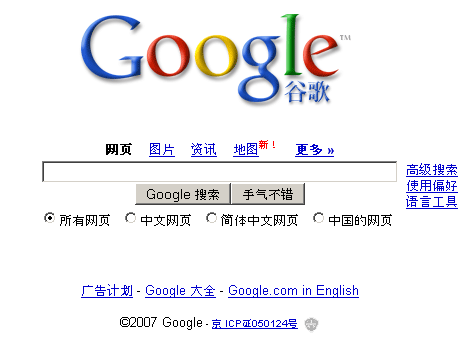
These phrases tell the whole story: Google made an “incredibly hard” decision, saying it had “potentially far-reaching consequences to review the feasibility of our business operations in China. We have decided we are no longer willing to continue censoring our results on Google.cn, and so over the next few weeks we will be discussing with the Chinese government the basis on which we could operate an unfiltered search engine within the law, if at all.”
Chief Legal Officer David Drummond gave that explanation on Google’s publicly accessible company blog. It bears the title “A New Approach to China,” and goes back, according to Drummond, to “a highly sophisticated and targeted attack on our corporate infrastructure originating from China that resulted in the theft of intellectual property from Google.” The “intellectual property” referenced might be Google’s highly secret search algorithm.
Other companies were also affected, principally financial, media and high-tech firms. If one considers the fact that Google’s legal officer also protested several attempts by the Chinese government to pry into the mail accounts of Chinese dissidents, Google’s clear message is that it is protecting human rights, free speech, its own intellectual property and private enterprise. It is defending internet security, keeping the public and other companies informed, thus presenting itself as an unselfish guardian angel, even as a political institution working for the good of the public.
A Lame Excuse
From a marketing point of view, this is a coup. The disputes of past years are instantly forgotten, such as arguments over copyright law or protection of personal privacy. People are expected to overlook the fact that Google is first and foremost a huge and aggressively expanding business. Now it’s all about freedom and that’s a politically as well as morally charged word. But it’s only a concept worthy of consideration, not an unconditionally applicable value, as Drummond makes it out to be. When Google made the decision in 2006 to begin operations in China, they were convinced “that the benefits of increased access to information for people in China and a more open Internet outweighed our discomfort in agreeing to censor some results.”
So they hoped free markets and the flow of information would relax tensions over human rights, perhaps even markedly improve them. That’s a popular delusion not only in the United States (globally, one need only look at Russia and India); it’s also a lame excuse. And another thing: From the technical point of view, we’re surprised to discover it’s a misconception that the internet is a de-centralized, non-hierarchical and therefore free medium with a political-moral tendency and the power to emancipate. Perhaps starry-eyed computer nerds think like that, but not the professionals at Google.
They’re pursuing a two-pronged strategy. Regarding Peking, they’re reinforcing their negotiating position; regarding the West, they’re building a corporate image as a dependable business partner and human rights activist.
That’s what’s called a win-win situation.

Leave a Reply
You must be logged in to post a comment.